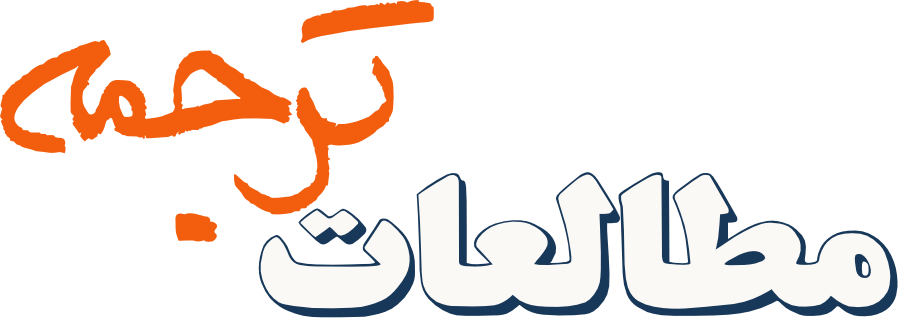ساختگرایی اجتماعی در تربیت مترجم: نیازسنجی ذینفعان
چکیده
پژوهش پیمایشی حاضر با هدف بررسی اصول آموزشی نظریه ساختگرایی اجتماعی در برنامههای تربیت مترجم مقطع کارشناسی در ایران انجام شد. در راستای نیل به این هدف، برای شناسایی تقاضاهای بازار و نیازهای دانشجویان در رابطه با سه اصل ساختگرایانه اصالت، همکاری و تسهیلگری، از مترجمین حرفهای و دانشجویان این رشته نیازسنجیهایی صورت گرفت. دیدگاههای مدرسان ترجمه نیز درباره رویکرد آموزشی آنان در قالب سه مقوله مذکور مورد بررسی قرار گرفت. برای پاسخ به این سؤال که آیا برنامههای کنونی تربیت مترجم در ایران منعکسکننده تقاضاهای بازار و نیازهای دانشجویان در رابطه با سه اصل اساسی آموزش ساختگرایانه است یا خیر، نتایج بررسیها با یکدیگر مقایسه شد. پس از تحلیل دادهها مشخص شد تسهیلگری، مهمترین قاعده برای دانشجویان و مترجمین حرفهای بود. مدرسان ترجمه نیز به طور مشابه تسهیلگری را رایجترین اصل در رویکرد آموزشی خود توصیف کردند. از سوی دیگر، در حالی که مترجمان حرفهای و دانشجویان اصالت را دومین اصل مهم عنوان کردند، کمبود آن در رویکرد آموزشی مدرسان دانشگاه به شدت وجود داشت. بنابراین، نتایج این تحقیق حاکی از وجود شکافی عمیق میان برنامههای کنونی و مطلوب آموزش ترجمه در رابطه با اصل اصالت بود. اطلاعات شخصی که از تحقیق حاضر استخراج شد نیز شواهدی را برای فقدان این ارتباط میان دانشگاه و ترجمه حرفهای در ایران ارائه کرد.
کلمات راهنما:
آموزش ترجمه, نیازسنجی, ساختگرایی اجتماعی, اصالت, همکاری, تسهیلگریمراجع
Adams, P. (2006). Exploring Social Constructivism: Theories and Practicalities. Journal of Education, 34 (3).
Baer, B.J. and Koby, G.S. (2003). Beyond The Ivory Tower: Rethinking Translation Pedagogy. Amsterdam/Philadelphia: John Benjamins.
Farahzad, F. (2018). General Specifications, Curricula and Lesson Plan for Bachelor’s Program in English Language Translation. Iranian Ministry of Science, Education and Technology.
Gabr, M. (2001). Toward A Model Approach to Translation Curriculum Development. Translation Journal, 5 (2).
Glasersfeld, E. von (1984). An Introduction to Radical Constructivism. In Watzlawick, P. (Ed.). The Invented Reality. New York: Norton.
Jonassen, D. (1991). Objectivism vs. Constructivism: Do We Need a New Philosophical Paradigm? Educational Technology, Research and Development, 39 (3).
Kelly, D. (2008). Training the Trainers: Towards a Description of Translator Trainer Competence and Training Needs Analysis. TTR (Traduction, Terminologie, Rédaction), 21 (1).
Kelly, D. (2014). A Handbook for Translator Trainers: A Guide to Reflective Practice. Routledge.
Kiraly, D. (1995). Pathways to Translation. Pedagogy and Process. Kent, Ohio: Kent State University Press.
Kiraly, D. (2000). A Social Constructivist Approach to Translator Education: Empowerment from Theory to Practice. St. Jerome Publishing.
Labbas, R. (2013). Epistemology in Education: Epistemological Development Trajectory. Journal of International Education and Leadership, 3 (2).
Li, D. (2000). Needs Assessment in Translation Teaching: Making Translator Training More Responsive to Social Needs. Babel, 46 (4).
Olusegun, S. (2015). Constructivism Learning Theory: A Paradigm for Teaching and Learning. IOSR Journal of Research and Method in Education, 5 (6).
Taylor, P.C. (2014). Constructivism. In Gunstone, R. (Ed.). Encyclopedia of Science Education. Springer.
The Comprehensive Scientific Map of Iran (2010). http://www.urmia.ac.ir/sites/www.urmia.ac.ir/files/%D8%B3%D9%86%D8%AF%20%D9%86%D9%82%D8%B4%D9%87%20%D8%AC%D8%A7%D9%85%D8%B9%20%D8%B9%D9%84%D9%85%DB%8C%20%DA%A9%D8%B4%D9%88%D8%B1.pdf.
The EMT Translator Trainer Profile Competences of the trainer in translation (2013). Version 12. http://docplayer.net/14445272-The-emt-translator-trainer-profile-competences-of-the-trainer-in-translation.html.
Venuti, L. (2017). Teaching Translation: Programs, Courses, Pedagogies. Routledge.
Wellington, J. (2006). Secondary Education: The Key Concepts. Routledge.
Windschitl, M. (2002). Framing Constructivism in Practice as The Negotiation of Dilemmas: An Analysis of the Conceptual, Pedagogical, Cultural, and Political Challenges Facing Teachers. Review of Educational Research, 72 (2).
چاپشده
ارجاع به مقاله
شماره
نوع مقاله
مجوز
Copyright Licensee: Iranian Journal of Translation Studies. This article is an open access article distributed under the terms and conditions of the Creative Commons Attribution–NonCommercial 4.0 International (CC BY-NC 4.0 license).





